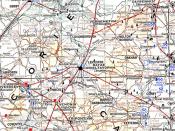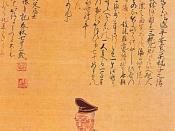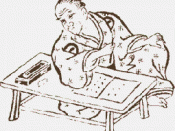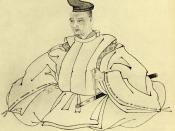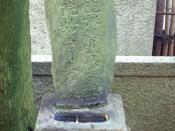These were explorers of the newest kind. Taking a new ideal and acting on it, by entertaining and amusing an audience. These are the fore fathers of the modern day writers of stage and screen. They created a new form of art that has evolved to be part of modern everyday life.
During the Greek theatre era, Sophocles had written numerous plays during the period. He brought the growing theatre the first three-person play. In-which by using more actors, he intensified the play with more complex plots. In-turn this made the plays more interesting, which helped his plays become more popular. Consider Sophocles's Oedipus Rex, the intense tragedy and irony is very influential to others who studied his writings. His plays like were very dramatic and tragic which laid the footwork for today's modern plays and movies. His influence is in just about every play that has been written since his time.
Now during the Roman theater era they mostly improved on and changed plays from the Greek theatre era. The two well-known play writers of the Roman time would be Plautus and Terence. Now Plautus directed his efforts to the comic side of theater. Focusing on romance and the trials and error of humankind. According to the His most famous play The Menaechmi "A play about mistaken identity involving two sets of twin"ÃÂ (67). This translates to the modern day comedy, Mary Kay and Ashley, whom are very successful. Terence on the other hand, dealt with dismembering older Greek stories and making them into a story. He would be one of the first to be said to be a plagiarist. Terence's plays were said to be "stressed characterization, subtlety of expression, and elegant language."ÃÂ (69) Many of the great writers have been enlightened by the groundbreaking writing they did.
The Medieval Theater was very different from the earlier times. The Holy Roman Empire deteriorating in this period, and the world changing these were very trying times for theatre.
During this changing time, the nun Hrosvitha was one of the first women play writer, or the first recorded in history. She wrote like that of Terence of Roman times, for her wit the stories she chose. She wrote about women that were looking forgiveness for sins they had committed. Her plays were mostly written about drama and a slight hint of mystery based from the women's view. Also during these time dark times, several different forms of play arose. Mystery plays were mostly written about biblical events that were known. Then there were the start of the modern day series called the Cycle Play, which is a sequence of plays one after the other.
Finally, the Asian Theatre, this form of playwriting has very many differences that the earlier forms. "According to tradition, kabuki was founded in 1603 by a Shinto priestess named Okuni. Deliberately provocative, she and her troupe of mostly women performed dances and comic sketches on a temporary stage set up in the dry riverbed of the Kamogawa River in Kyoto. Okuni dressed like a man and wore a cross, probably imported from Portugal, around her neck to highlight her eccentricity."ÃÂ (1) The play writer Chikamatsu Monzaemon later wrote mostly from the Kabuki theme. His stories are about the life of the Japanese and the nobility of their culture. Most of his plays were based on event in Japan from the past to his time. Coming from a Samurai family his plays produced some of the plays that are used in puppets shows used for children's theater. These plays are still used today as a main form of the Asian theater. The Japanese has maintained the same routine, and they plays have varied very little from the originals.
After all the different ideals and developments with the theatre throughout the years, it paved way for some of the greatest playwrights yet. It is very interesting to see how acting and plays have evolved, and what the future will bring.
Word count 366 Works Cited Wilson, Edwin, and Alvin Goldfarb. Living Theatre: A History 3rd ed. Boston: McGraw-Hill, 2000.
Matsuda, Ryohei. "The History of Kabuki"ÃÂ 02 Feb. 2002 < http://www.indiana.edu/~japan/kabuki.html>.
